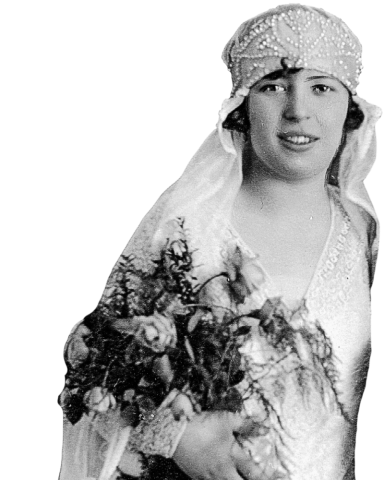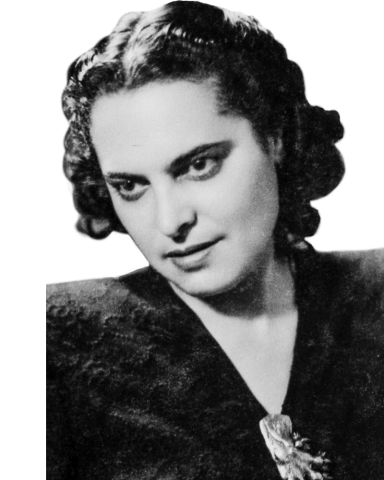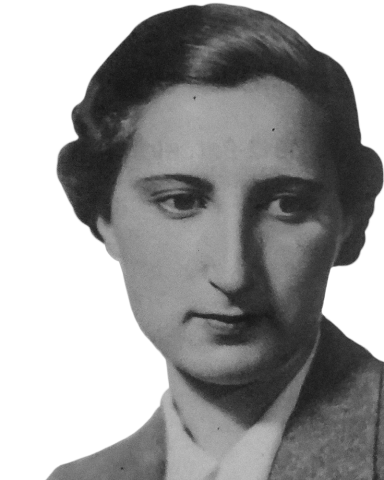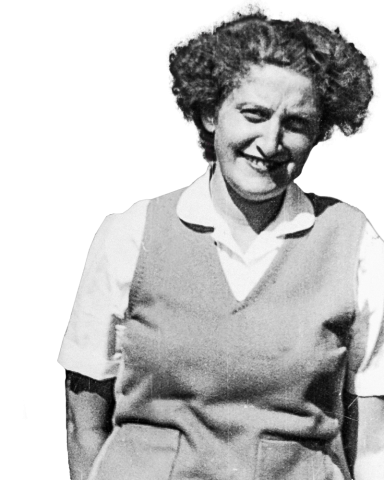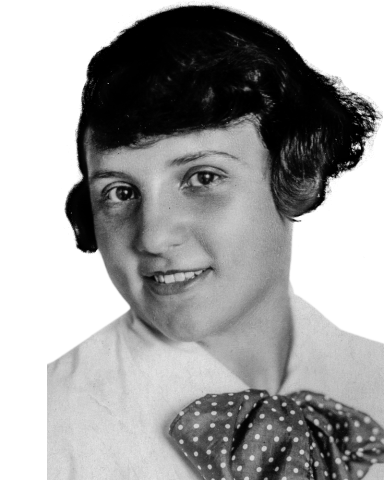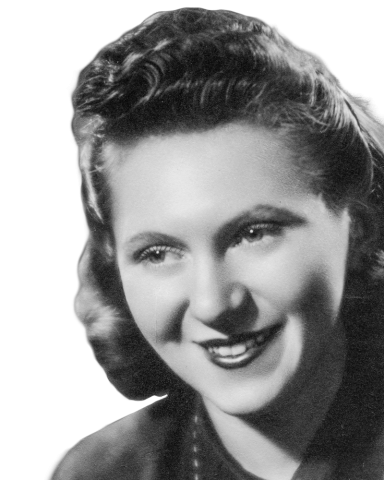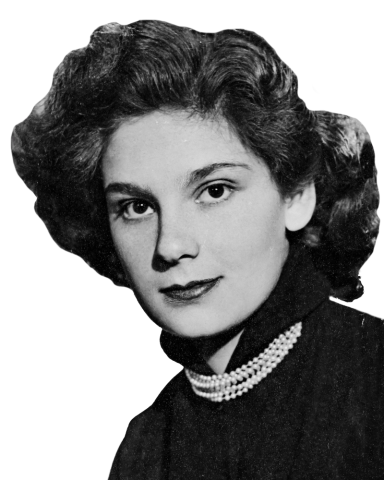
Vera Szekeres-Varsa
Vera Szekeres-Varsa was born in 1933 in Budapest, the second child to a long-ago assimilated Jewish family with no religious beliefs and vivid Hungarian sentiments. In 1944, when the Germans marched in Vera's life changed drastically.
Interviewed by
Mihály Andor
Year of interview
2007
Interview location
Budapest, Hungary
Vera Szekeres was born in 1933 in Budapest, the second child to a largely assimilated Jewish family with strong Hungarian sentiments. Her mother, Ilona Garai (Grünhut), came from a middle-class family. Her father, József Varsa (Weiss), was a lawyer of poorer but also assimilated descent. Vera’s parents moved to Budapest where they lived unmarried for some years and had two daughters. Her father's legal practice provided a decent living, but a tuberculosis infection he contracted in the trenches of World War I also provided trouble for the family. Vera’s older sister, Klárika, died from tuberculosis as a child. Vera also suffered from a tuberculosis infection and spent much time outdoors, becoming 'that girl who is always sitting on the bench reading.” She started school in 1939, complemented by her parents' homeschooling in poetry, music, sports, and foreign languages.
Until 1944, Vera faced no antisemitic incidents. On 19 March, the German army marched in and in April, the law excluded her father from the Bar Association. All Jews had to wear the yellow star. The family had to move to a building designated for Jews. It was very crowded, but the inmates organized their lives well. The family bought Christian birth certificates. Vera's new name became Veronika Vágner.
Though exempted from slave labor because of his illness, her father was called up in October, but with the family's coordinated efforts, he was 'bought out' of the camp. On 18 October, the house's inhabitants were rounded up, robbed, and ordered to line up, by a group of Arrow Cross soldiers (Hungarian fascists) obviously to march to the bank of the Danube, to be executed. Shomer (members of the Hashomer Hatzair Labour Zionist youth movement) rescuers dressed as Arrow Cross leaders saved them. They obtained keys to an empty and safe apartment through a Christian relative. There, they survived the last months of the persecution in relative safety. To boot, the maiden name of the apartment' owner was Wágner! Still, despite many fortunate coincidences, the 12-year-old girl had to endure terrible experiences.
After liberation, she went to the Jewish High School, where she felt uncomfortable because "everyone there was a Zionist." Following a brief "Anglomaniac'' period, she became enthusiastic about communism and the world revolution. She decided to enroll in a school with a solid left-wing movement, of which soon she was elected a local secretary. In the same year, she graduated with distinction. She enrolled immediately in the Russian Institute, a newly organized entity to replace the Russian Department of the university. Her life as a political activist halted here, as she was considered less valuable than the workers' cadres. At the end of the academic year, she married her teenage sweetheart, Sándor Virág, who soon got an offer to continue his medical studies in the Soviet Union. By their child's birth in April 1953, the marriage had grown cold from the lengthy absences. Vera supported herself and her daughter Judith, living at her mother's place and earning some money through private tutoring.
After divorcing her first husband in 1955, Vera married her close friend György Konrád, who had been expelled from the Russian Institute for having a bourgeois background. In the following years, Vera outgrew her communist ideals.
After graduating from university, Vera taught Russian, English, and Hungarian at a primary school for 6 years before she began teaching high school. Teaching renewed her interest in psychology, so Vera enrolled in a correspondence course, and graduated in 1963. In 1968, she enrolled in another correspondence course in art history. In the meantime, Vera had divorced her second husband and in 1964 married György Szekeres, a French-educated intellectual who faced political persecution. They immediately began a life together but consciously chose never to live in the same apartment. György Szekeres died in 1973, Vera’s mother in 1970. Vera than married her 4th husband, András Román, a preservationist she was married to until his death in 2005.
Vera later taught at the Academy of Drama and Film, wherein in 1978, she became a full professor. As the regime-change movements began, Vera joined the liberal party SZDSZ. She served one term as a municipal councilor and was chair of the Cultural Committee. She was also the President of Amnesty International in Hungary for many years, a post she resigned from in 2000.
She raised her daughter practically by herself. She became a mother at a very young age, still, Judit, now one of the country's most respected gallerists, was raised in the same careful spirit Vera herself had been. Judit considers herself Jewish but is not religious. Vera stressed the need for future generations to know about the Holocaust and that persecution of human beings must be halted by the most potent means.
